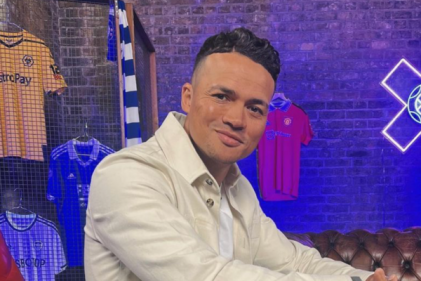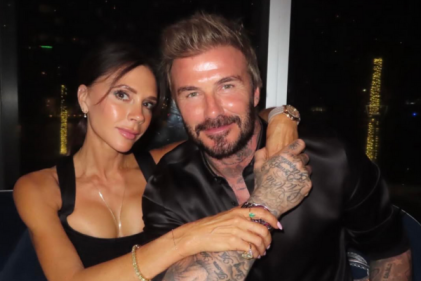While the healthcare system in the UK is known to be one of the best in the world, especially due to the high competence of our healthcare professionals, this can’t ensure things won’t sometimes go wrong. Medical negligence cases have become much less frequent in the UK, but factors such as lack of medical expertise, human error, and understaffed or underfunded medical facilities can lead to issues that, unfortunately, affect patients.
Filing a medical negligence claim is a complex process, and when you need to do this for a minor, things can get even more complicated. As a mother, it is difficult to keep your calm and think rationally when your child has been hurt, but if you want to make the best decisions for your little one, you need to avoid impulsive reactions.
If your child has been the victim of medical negligence, they are entitled to making a medical negligence claim and receive compensation for the injuries sustained. While it can be a daunting process for both the child and parents, a legal professional can help make things easier to bear.
Each medical negligence claim is different, so what works for an individual may not be a viable solution for someone else. However, to make the process a little easier to understand and navigate through, we have put together a list of questions and answers you can read. Hopefully, this will clear the air as to what you can and should do when your child has been the victim of medical negligence.
How can children claim for compensation?
Any person, minor or not, who has been the victim of medical negligence can file a claim for compensation. Some examples of medical negligence include:
- Failure to diagnose
- Injuries and trauma
- Surgical errors
- Ignoring or misreading lab results
- Improper medication
- Poor aftercare
- Disregarding patient history
Additionally, children can also claim compensation for birth-related injuries, either to themselves or the mother. For example, depriving a baby of oxygen in the first moments of life can lead to cerebral palsy and other disabilities for which compensation can be claimed.
Because a minor can not always know what is in their best interest, filing a claim requires the child to have a Litigation Friend, which in most cases is one of the parents. The Litigation Friend is the one that will communicate with the lawyer and handle the situation in the child’s best interest.
Who should I claim against?
One of the main reasons parents avoid making medical negligence claims on behalf of their children is that they don’t really know who to claim against. Put simply, a claim can be made against anyone that owes the child a medical duty of care, including hospitals, doctors, surgeons, nurses, and mental health professionals.
What matters most in these type of cases is to ensure the claim is valid, meaning to be able to prove the medical professional in question did not provide accurate treatment or provided treatment that caused harm to the child.
Are there time limitations?
In England and Wales, victims of medical negligence are given three years to bring forward a claim . This is called “limitation period”. However, when it comes to children, the limitation period does not start until after they have reached the age of 18.
Still, if it is proven that the child does not have the mental capacity to handle a claim even after the age of 18, the limitation period does not start, meaning they can bring a claim at any moment. This changes if the person gains mental capacity at some point in the future.
However, in medical negligence claims, time is very important. Valuable proof that can help with the case can be lost over time, making the case that much more complicated and difficult to win. Experts advise you should act as soon as possible to avoid these unnecessary complications.
What happens to the money received?
If compensation is obtained, then the Court is required to protect the money on behalf of the child. They can gain access to it once they gain mental capacity as an adult, which usually means when the child reaches the age of 18. If necessary, applications can be made to gain access to part of these funds before the child is 18 years old, if proven the money will be used for the child’s wellbeing.
If the child does not gain mental capacity even as an adult, then a Professional Deputy will be appointed to manage these funds. The Professional Deputy is the one making payments to meet the needs of the child, including housing, paying for professional caregivers, and receive appropriate treatment.
Should I hire a specialised medical negligence lawyer?
Seeking professional help from a lawyer that specialises in personal injury and medical negligence claims can be very beneficial for the case. Lawyers that specialise in this area have experience when it comes to filing for compensation and can provide valuable advice as to how you should proceed.
There are lots of sensitive aspects when dealing with medical negligence, especially if a child has been involved, and only a professional can know how to handle these aspects well. In most cases, the Litigation Friend is one of the parents, and when your child has been injured or hurt, it can be difficult to see things from an objective point of view and make the right decisions. This is where a knowledgeable lawyer can give advice and take some of the stress off of the family.
Are negligence claims expensive?
This is perhaps the main concern for most parents, but even if expenses can reach a significant level, there are options you can consider. Most medical negligence lawyers operate on a No Win No Fee type of arrangement (formally known as a Conditional Fee Agreement), which means there will be minimal financial efforts required on your part.
Your solicitor will analyse the case and determine if it is strong enough to make a claim, and if so, they will pursue it. If the claim is successful, the opponent will have to cover your legal costs.










